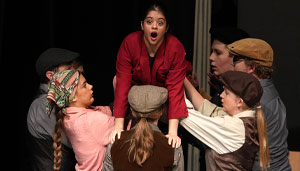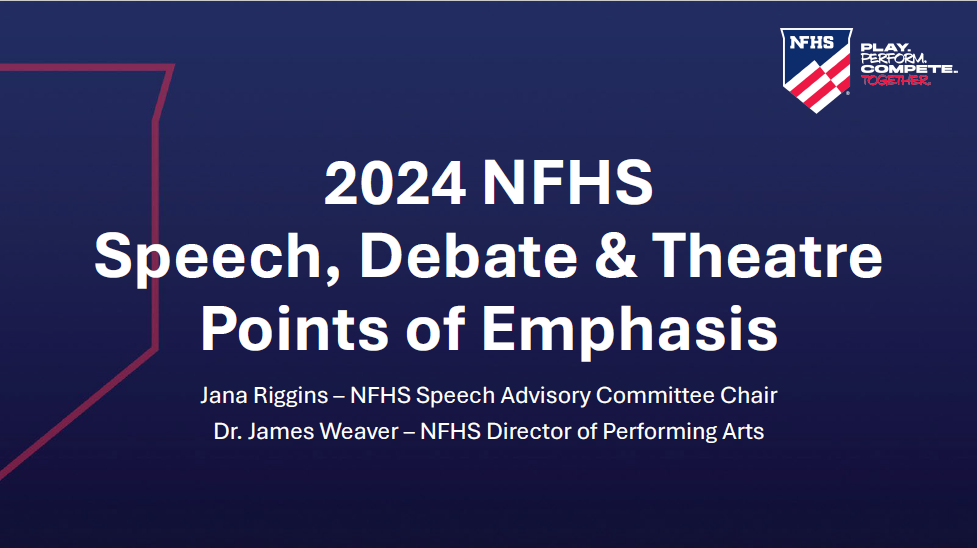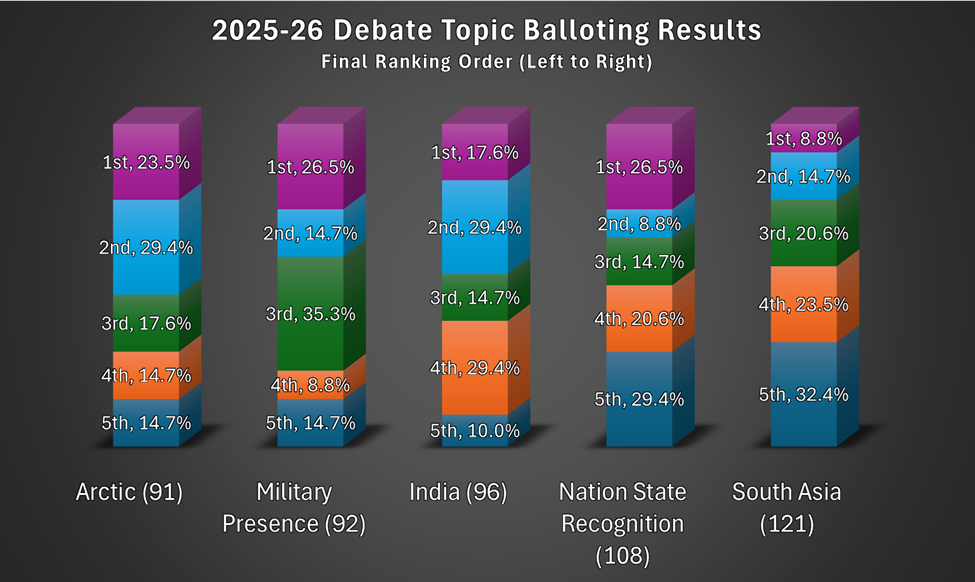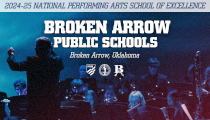Minneapolis Mayor Inspired By 'Intellectual Battle' At Debate Fundraiser
By Lauren Giella on October 24, 2023 speech debate & theatre directors & judges article PrintThis article first appeared in Newsweek Mightier and was authored by Lauren Giella. Please find the original article here and go support their work.
It's not uncommon to feel like elected officials don't really care about their constituents and the problems affecting their community, especially young people of color attending public school in a city. But in the Twin Cities, local and state officials prove that is not the case.
Thursday, September 21, marked the 11th annual Mayors Challenge, a fundraiser for the Minnesota Urban Debate League (MNUDL) in which a few students demonstrated their debate skills.
Guests included league alumni, local law firms, the president of Augsburg University, as well as Minneapolis Mayor Jacob Frey and the Minnesota governor and first lady. Typically, both Twin City mayors would be present, but St. Paul Mayor Melvin Carter was unable to attend.
Four students representing schools in both Minneapolis and St. Paul participated in a brief debate on economic inequality. MNUDL Executive Director Amy Cram Helwich told Newsweek that these students were chosen due to their seniority on their debate teams, their leadership and comfort speaking in front of a large crowd.
They all had also participated in the league's summer camp, where they got a head start on learning about this year's debate topic, which discusses whether the U.S. government should eliminate economic inequality by adopting a federal jobs guarantee, expanding Social Security and/or providing a basic income.
Income inequality is a topic that directly impacts the communities where these students live, Lily St. Dennis, a senior at Highland Park Senior High School in St. Paul, told Newsweek.
"I just started working for the first time in the past two years and so it's something that feels like I know more about," she said. "You kind of see the different sides in a way because it's like, I have a job and it's a really nice job, but [there are] also people that don't get the same opportunities that I do."
While this topic, like many of the ones students debate, can often be divisive, Joe Gothard, the superintendent of St. Paul Public Schools, told Newsweek that this event never feels political.
"This really is an exercise in skill-building and their ability to take a really complex subject and break it down to a way that allows them to communicate their plan and answer various questions that they've posed," he said.
The event not only showcased and raised funds for the work of the MNUDL, but it was a testament to the dedication of local and state leaders in supporting public education in the Twin Cities.
Minnesota state legislators just passed what Gothard calls a "historic" $2.2 billion education bill, which will help fund libraries, support staff, improve safety and help diversify the teaching workforce. Gothard said this bill, along with the presence of these leaders at the event, shows that they truly care about education.
The program began with welcoming remarks from Minnesota Governor Tim Walz, who could not be there in person but Zoomed in from a meeting with his Maryland and New Jersey counterparts. He said this event highlights the "best and brightest" in the Twin Cities as the students put forward "real solutions."
Both he and first lady Gwen Walz are former teachers and big supporters of public education and debate programs. Gwen was even a debate coach and said she often dragged her husband to judge debate rounds, an experience that he told the crowd left him "amazed" and "hopeful for the future."
When the main event began, the room was abuzz. The students moved to the stage, ready to win over the audience on their respective positions.
On the affirmative side, Abdihafid Mohamed, a senior at Edison High School in Minneapolis, and Adai Truong, a junior at Central High School in St. Paul, argued for a universal basic income. The negative side, which was comprised of St. Dennis and Sabrena Thao, a senior at Tartan High School in Oakdale, instead proposed that a federal jobs guarantee was a better option.
After the debate, there was a Q&A between Chris Farrell, the economic editor of Marketplace Money and a former Minnesota Public Radio host, and Steve Grove, the former commissioner of employment and economic development in Minnesota and the current CEO and publisher of the Star Tribune. The impact of the support from local and state leaders was not lost on the students.
Truong said having officials present and participating in discussions with the students lets them know that their voices matter, especially on a topic that is close to home for many of them and gives students the opportunity to conceptualize real solutions.
For St. Dennis, talking with the mayor was particularly impactful, as she is gearing up to vote in her first election in 2024. She said she will finally be able to participate in the political world she's talked about for seven years as a debater.
"In this space, we get to talk more directly with the leaders of Minneapolis, St. Paul [and] Minnesota about how we can actually go forward in solving and addressing things that are really pressing in the cities right now," she said. "And they get to hear what high schoolers are thinking and what we are talking about in and outside of the debate space."
As a politician, Mayor Frey said elected officials could learn something from these young debaters. He said much civil discourse today is based on ideological and political rhetoric and name-calling on both sides of the aisle.
But Frey said the "intellectual battle" between the students who disagree on a topic got to the core of the issue and showed that it's "heroic" to change your perspective after discovering you were wrong.
"You need debate, you need argument. It's something I welcome because it gets you to a better solution," he said. "[The students] put themselves in a position where they can see the real-life consequences of the things they're debating."
Another key part of the Mayors Challenge is the Champion of Change award, given to a member of the community who models "courageous leadership and inspires [the] students."
This year's honoree was Minnesota Attorney General Keith Ellison, a former member of the U.S. House of Representatives and staunch civil and human rights advocate.
First lady Walz, a close personal friend of Ellison, introduced the attorney general and spoke to the room of his work to increase voter turnout in his congressional district and his efforts prosecuting the George Floyd case. She said Ellison is "not all about the show, he's about the work."
Ellison told Newsweek that receiving this award was "humbling" and that he hopes it serves as a beacon of hope to which young people will aspire as future community leaders.
He added that his presence at the event, along with Walz and Frey, is essential to show the students that their leaders really do care.
"We want the kids to know that they're worth the mayor stopping everything he's doing and spending time with them and that is boosting their dignity, their confidence, their pride, so that makes them unconquerable," he said.
At the end of the night, the winner of the debate was announced. The competition was close, with the negative team edging out the win with 58 percent of the audience vote.
Cram Helwich said the close results indicated the quality of the student debate and showcased their ability to think critically about the complexities of economic policies.
After the event, Abdihafid Mohamed was glowing. Not only did he feel the adrenaline rush of speaking in front of 200 people, but he also achieved his goal of meeting new people and making connections. Even though his side lost the debate, he said he felt like a "famous celebrity." He was overwhelmed with people congratulating him on a job well done and exchanging cards, emails and LinkedIns.
The highlight of the program, he said, was talking face to face with Mayor Frey. Sharing the stage with Frey, Attorney General Ellison, the governor and the first lady made Mohamed feel like he could one day be a leader in his community.
"Being part of this [MNUDL], seeing them all, means that we're not far from each other," he said. "I have the opportunity and possibility to be in their shoes."
Lauren Giella
This article first appeared in Newsweek in September, 2023. Lauren Giella is a Newsweek National reporter based in New York. Her focus is reporting on breaking and trending U.S. and international news. She has covered politics, policy, trials, elections and the war in Ukraine. Lauren joined Newsweek in 2021. She is a graduate of the University of Southern California. You can get in touch with Lauren by emailing [email protected].
Most Recent Articles







